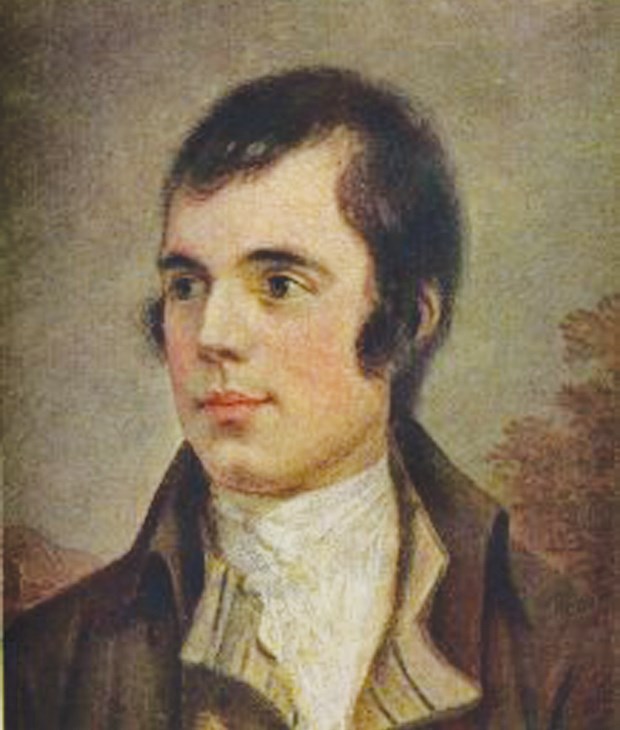Robert Burns was the eldest son of a poverty-stricken farmer.
Though his father had moved to Ayrshire, where Burns was born, in an attempt to improve his fortunes, he eventually died bankrupt.
Burns, who had been to school since the age of six, and was also educated at home by a teacher, had, by the age of 15, become the farm's chief labourer.
He'd also acquired a reading knowledge of French and Latin and had read Shakespeare, Dryden, Milton and the Bible.
His rebellious nature soon became evident in his acts. Burns' first illegitimate child was borne to him by Elizabeth Paton in 1785.
Two sets of twins later followed, and various amorous intrigues, from Jean Amour, whom he afterward married.
It was also during this period that Burns' first achieved literary success.
Though he had thought of emigration to Jamaica as a possible way to avoid his mounting problems, he published his collection, Poems Chiefly, in the Scottish dialect on July 31, 1786 at Kilmarnock.
This volume contained, among others, The Cotter's Saturday Night, To a Mouse, To a Mountain Daisy and The Holy Fair, all of which were written at Mossgiel, Ayrshire.
The volume brought him immediate success.
Burns married in 1788 and moved to Ellisland with his bride. He primarily wrote for James Johnson, whom he met in Edinburgh, and later for George Thomson.
Alongside writing poetry, which Burns did on an unpaid basis, he also worked from 1791 onward as an Excise Officer.
This allowed him to give up farming and move to Dumfries. He died from rheumatic fever just five years later, having also published, again in 1791, his last major work, a narrative poem entitled Tam O'Shanter.
*Burns' Auld Lang Syne is recognized by the Guinness Book of World Records as the third most popular song on the planet, behind Happy Birthday and For He's a Jolly Good Fellow.
Auld Lang Syne
Should auld acquaintance be forgot, And never brought to mind? Should auld acquaintance be forgot, And auld lang syne! Chorus -For auld land syne, my dear, For auld lang syne, We'll tak a cup o' kindness yet, For auld lang syne.
And surely ye'll be your pint stowp! And surely I'll be mine! And we'll tak a cup o' kindness yet, For auld lang syne.
Chorus...
We twa hae run about the braes, And pou'd the gowans fine; But we've wander'd mony a weary fit Sin' auld lang syne.
Chorus...
We twa hae paidl'd in the burn, Frae morning sun till dine; But seas between us briad hae roar'd Sin' auld lang syne.
Chorus...
And there's a hand, my trusty fere! And gie's a hand o' thine! And we'll tak' a right gude-willie waught, For auld lang syne.



